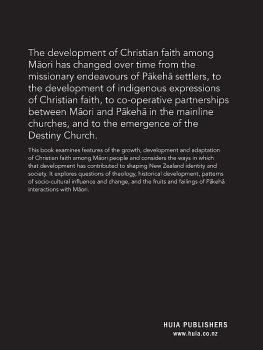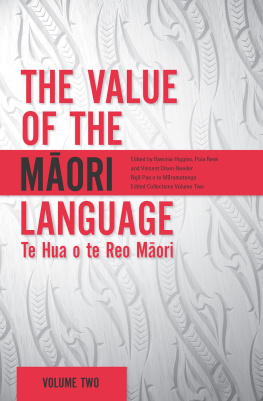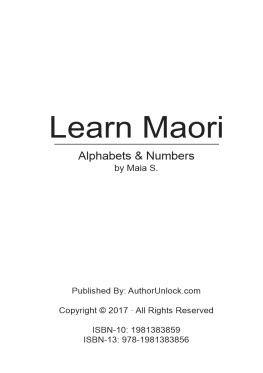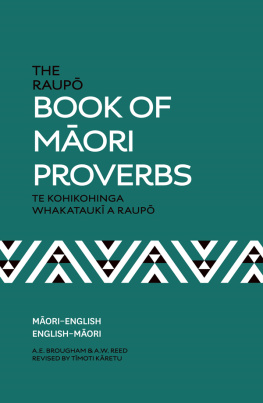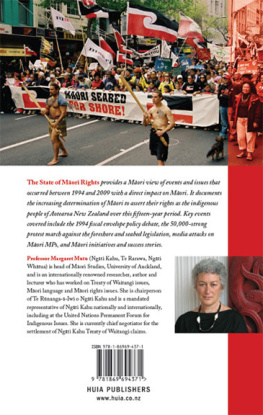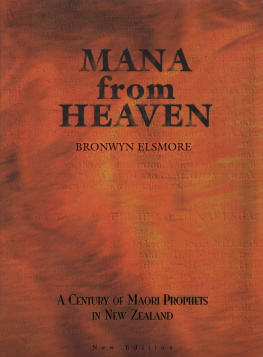Contents
Guide
Page List
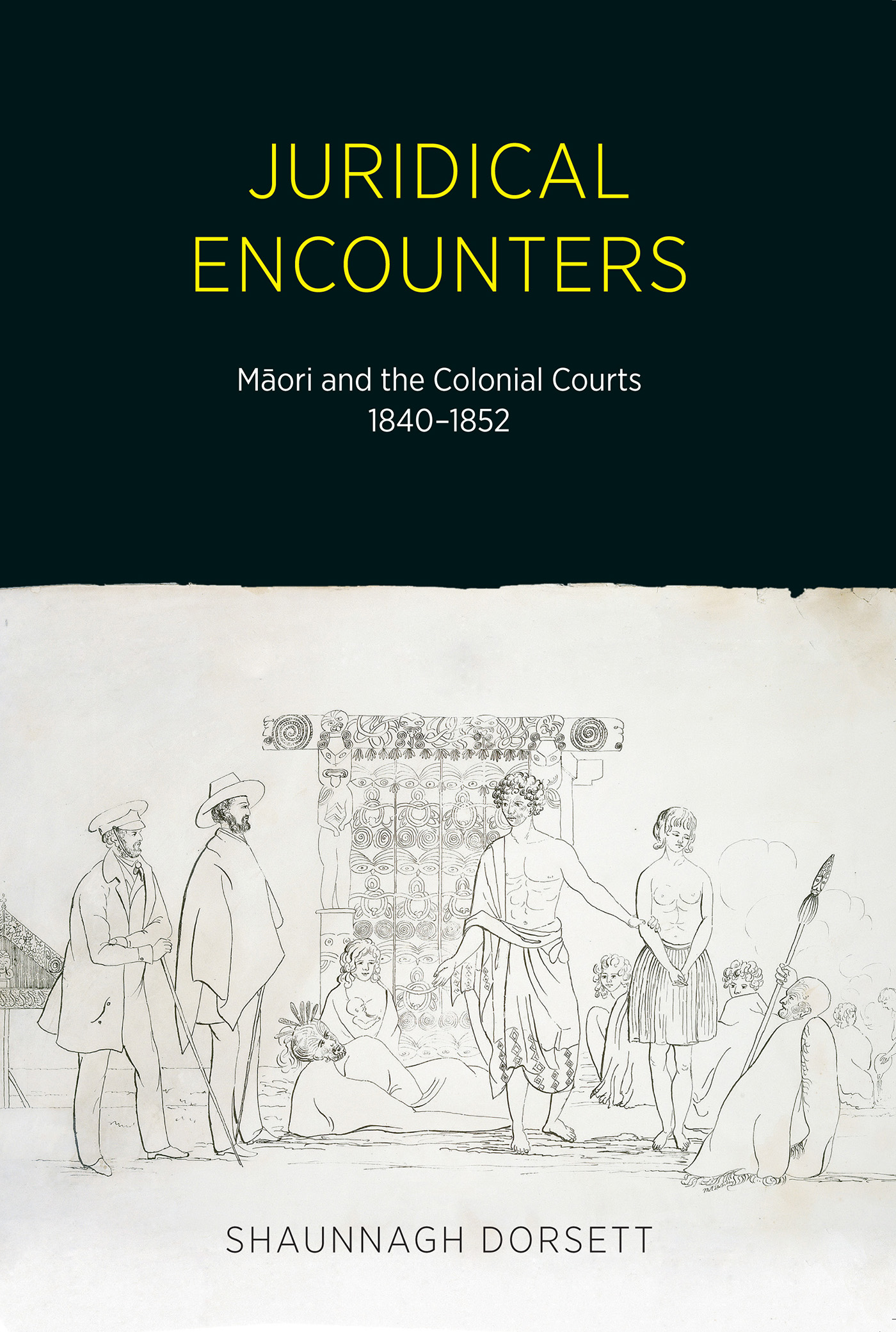
JURIDICAL ENCOUNTERS
Mori and the Colonial Courts 18401852
This is a book that opens up an almost entirely new territory of legal historical research and places Mori agency at the forefront of the narrative. By unearthing little-known stories of Mori direct engagement in New Zealands early courts, Dorsett shines a light on important aspects of our early colonial history.
PROFESSOR DAVID V. WILLIAMS, UNIVERSITY OF AUCKLAND
Juridical Encounters is a rich, intellectually robust, and cogently argued legal history. By plotting the various ways in which Mori encountered, used, or repudiated the British legal system Shaunnagh Dorsett demonstrates the vital role colonial courtrooms played as sites of cross-cultural encounter and political debate, bringing a fresh and exciting perspective to New Zealands colonial past.
ASSOCIATE PROFESSOR ANGELA WANHALLA, UNIVERSITY OF OTAGO
JURIDICAL ENCOUNTERS
Mori and the Colonial Courts 18401852
SHAUNNAGH DORSETT

For George
Acknowledgements
In writing any book one of the hardest, and yet most pleasant, tasks is to thank the myriad of people without whom the project would never have seen the light of day, let alone come to fruition. Foremost, I would like to thank the New Zealand Law Foundation: Lynda Hagen, the Executive Director, Diane Gallagher, and the Board of Trustees. I would like to thank them not just for supporting this project, and the previous Lost Cases project of which I was a part, but for their support for legal history more generally. New Zealand legal historians are privileged to have an institution which supports their work so strongly. Institutionally, both the Faculty of Law at the University of Technology Sydney and at Victoria University of Wellington also deserve considerable thanks. They have both been generous during the writing of this book in multiple ways.
There are, of course, several people without whom this book could not have been written: Hannah Boast, who slaved in the archives for months, undoubtedly cross-eyed from looking for small court returns, and who willingly returned time and time again to retrieve important fragments through which this story was constructed; Megan Simpson, whose wonderful research as part of the Lost Cases project started this book. I am sure its genesis is coffee with her so many years ago and the unforgettable statement (not question): But this is a book, right. Tai Ahu and Tawini White, whose translations add an important element to the text. Lachy Paterson for the added translations by email on a Sunday afternoon. Kosta Hountalas for the countless hours spent counting Mori participants on court returns, and collating crimes. Alison Whittaker for the same for Nelson. Thanks also to Kennedy Sanderson and William Coleman for fetching items from the National Archives at Kew every time that I realised that I needed yet one more document...
Others gave feedback and encouragement and helped in various practical ways. Particular stalwarts include Damen Ward, Geoff McLay, Alecia Simmonds, Shaun McVeigh, Amanda Nettelbeck, Richard Boast and Andrew Sharp. I cannot thank each of you enough. Beyond that there are, of course, many more debts: P.G. McHugh, David V. Williams, Ann Genovese, Diane Kirkby, Mark Hickford, Bevan Marten, Eugene Schofield-Georgeson, Shelley Gavigan, to name just a few. For those who in the madness that is finishing a book I have missed, my thanks is nevertheless sincere.
Thanks also must go to the staff at Archives New Zealand; State Records New South Wales; The National Archives, Kew; the Alexander Turnbull Library, Wellington; the Mitchell Library, Sydney; the Hocken Library, Dunedin and others. Their patience and help is much appreciated.
Finally, but by no means least, thanks to Sam Elworthy and the staff at Auckland University Press and to Mike Wagg for the impeccable editing.
And George: for encouragement, for proofing, for generally putting up with me and, most importantly, for the lasagne.
Some parts of this book draw on previously published material:
Sworn on the Dirt of Graves: Sovereignty, Jurisdiction and the Judicial Abrogation of Barbarous Customs in New Zealand in the 1840s, The Journal of Legal History, vol. 30, 2009, pp. 17597
Destitute of the Knowledge of God: Mori Testimony Before the New Zealand Courts in the Early Crown Colony Period, in Diane Kirkby (ed.), Past Laws, Present Histories: From Settler Colonies to International Justice, ANU E Press, Canberra, 2012
How Do Things Get Started? Legal Transplants and Domestication: An Example from Colonial New Zealand, New Zealand Journal of Public and International Law, vol. 12, 2014, pp. 10322
The Precedent Is India: Crime, Legal Order and Governor Hobsons 1840 Proposal for the Modification of Criminal Law as Applied to Mori, law&history, vol. 1, 2014, pp. 2955
Introduction: Juridical Encounters
At the first sitting of the New Zealand Supreme Court in early 1842, Maketu Waretotara, a Ng Puhi man, was convicted and sentenced to death for the murder of Thomas Bull. Maketu was neither the first Mori indicted for murder by the fledgling New Zealand administration, nor the first tried for a crime by a New Zealand court. He was, however, the first person executed by the settler government. The confluence of the opening of the Supreme Court the most visible symbol of the new British legal order and Maketus trial, ending in the first hanging in New Zealand, has ensured his place in public memory to this day.
Some years later, William Swainson, the Attorney-General and Crown Prosecutor for Maketus trial, wrote of the first sitting of the Supreme Court that in this unpretentious building the advent of a new power in these islands was solemnly proclaimed. Maketus trial was an important element of that proclamation and was intended to be so. It was, if you will, an exercise in public relations. According to Swainson, Maketus case had deliberately not been brought on first. Rather, another matter, that of Francis Leethart, who had been indicted for shooting at Pooterai, was purposely taken first... to satisfy the people of both races that our English law the law to which they were all henceforth to be subject was no respecter of persons... all were alike to be the objects of its care.
Contemporary accounts by colonial administrators of Maketus trial sought to paint a portrait of a new legal era in which British sovereignty had been established over the islands and in which law would be impartially administered to all by the new institution of the Supreme Court. Unlike its nearest neighbour New South Wales in which legal uncertainty as to the amenability of its aboriginal (indigenous) inhabitants to British law had lasted for decades, in New Zealand it was accepted at the outset (by the British) that Mori, as subjects of the Queen, were to be ruled by British law, at least in their interactions with Europeans. This was only the first of a number of occasions across the 1840s when the Crown and its officers trumpeted the willingness of Mori to give up their own to be tried according to British law as evidence of their acknowledgement of the power and superiority of that law.
The rhetoric and the reality were somewhat different. At the signing of the Treaty of Waitangi in 1840, Mori lived under and according to their own laws. While the colonising British government asserted sovereignty over the islands of New Zealand, they understood, whatever the rhetoric to the contrary, that this assertion of sovereignty hardly meant that the common law had become the legitimate or even effective law of the land. It had been acknowledged prior to colonisation that Mori were sovereign (although whether for the British that meant quite the same sovereignty as enjoyed by European nations was debatable), and that they had their own laws, however brutal or sometimes uncivilised they appeared to European eyes. After the acquisition of sovereignty all British subjects in New Zealand were formally subject to British law, and this included Mori who were declared subjects by Article III of the Treaty. Despite this, the British, at the outset at least, did not intend Mori to be subject to British law in all circumstances. In particular, there was no assumption that Mori would necessarily be amenable to British law with respect to many



